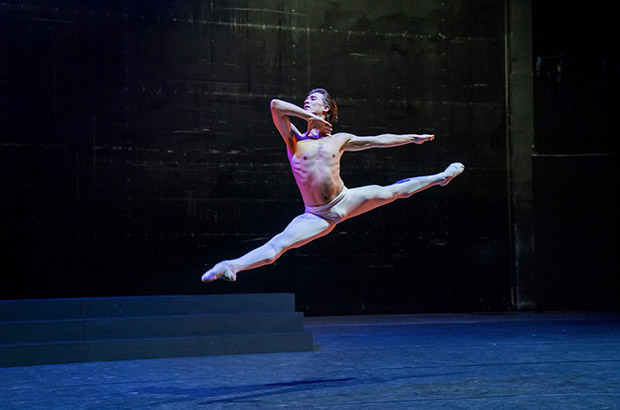
© Tristram Kenton, courtesy the Royal Opera House. (Click image for larger version)
Royal Opera House / Royal Ballet
Live from Covent Garden: Second Streamed Concert
including Dance of the Blessed Spirits, Song of the Earth
★★★★★
Streamed from Royal Opera House, London
20 June 2020
Interview with Vadim Muntagirov
Show details incl streaming link
See more ROH Streaming Performances
www.roh.org.uk
‘The divine Vadim Muntagirov raising our spirits there’, cooed presenter Anita Rani as the (pre-recorded) Dance of the Blessed Spirits faded away after the start of the second live concert from the Opera House. The Royal Ballet’s contribution lasted all of three and a half minutes for the site’s paying customers (just £4.99 per household) who only wanted to watch the danced solo.
Far from raising our spirits, Muntagirov’s deeply felt solo probably had many of us in tears. Rani possibly hadn’t watched it, pre-occupied as she was with her cue cards. Why not have someone knowledgeable to introduce the programme? Antonio Pappano, the House’s music director, could have done it before assuming his role as conductor of Das Lied von der Erde/Song of the Earth.
The context of the solo to Gluck’s soulful music from his opera Orpheus and Eurydice would have been helpful. Orpheus has descended to the Underworld in search of his wife, Eurydice. There he encounters the frenzied Furies and the hallowed Blessed Spirits, who dance in the Elysian Fields before Eurydice emeerges. The Spirits try to console and distract Orpheus from his quest.
🤩 A stunning performance from Saturday’s ‘Live from Covent Garden’ concert – @TheRoyalBallet's Vadim Muntagirov performs ‘Dance of the Blessed Spirits’ by Frederick Ashton
Catch the concert on demand now: https://t.co/RphT8fGPSJ #OurHouseToYourHouse pic.twitter.com/5B35adL6aw
— Royal Opera House (@RoyalOperaHouse) June 22, 2020
Frederick Ashton, who choreographed the entire opera in 1953 and 1958, had used the flute music for female soloists. His later 1978 version was created for Anthony Dowell to perform in an opera gala. The solo, rarely performed, vanished for about 30 years before Dowell revived it in 2010 for David Hallberg and coached Muntagirov in it for an Ashton Rediscovered Masterclass in 2015. In the words of David Vaughan, author of Frederick Ashton and his Ballets, ‘The new solo for Dowell distilled into a single pure essence both the bereavement of Orpheus himself and the beatitude of the blessed spirit.’
Beautifully filmed before the start of the concert, Muntagirov did indeed appear a vision in a darkened world. Stripped to white tights with nowhere to hide, he mounted and descended an almost invisible podium (without looking down at the steps), following the phrasing of the flute, exquisitely played by Catherine Baker. She and the string players were seated to one side, so Muntagirov seemed to be summoning their musical spirits as he criss-crossed the stage in search of release from his loneliness. His long, yearning lines in adagio were contrasted with swift runs and space-devouring leaps; these were heartfelt impulses, not coached responses to the music. Though Ashton did not intend the solo to be a virtuoso number, it requires sustained control, and Muntagirov appears to be fine form after nearly three months in lockdown.
He interpreted the solo as an anguished lament for all that he, the world’s dancers and the rest of us have lost during this period of fear and confinement. It ends with a powerful plea for peace and liberation as the dancer puts his hands together and then extends them upwards into darkness and silence. Exceptionally, the absence of applause felt appropriate, as it did for the long-drawn-out conclusion of Song of the Earth.
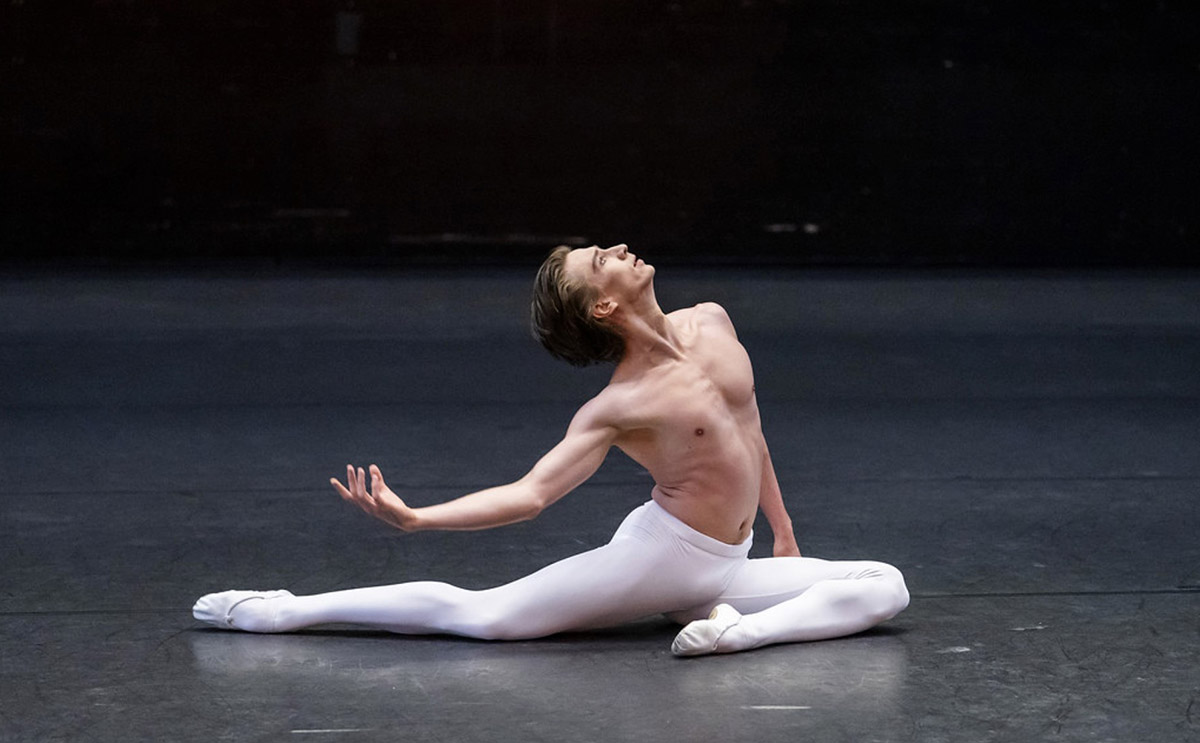
© Tristram Kenton, courtesy the Royal Opera House. (Click image for larger version)
Since English National Ballet had streamed its 2018 performance of Song of the Earth three nights earlier, Kenneth MacMillan’s ballet to Mahler’s song cycle was fresh in dance lovers’ memories. The Live from Covent Garden concert account in a chamber orchestra arrangement meant that the singers’ voices were not drowned by a full orchestra in the pit, as they tend to be in ballet performances. There was the added advantage of subtitles in English for the German translation of ancient Chinese poems. Even when printed in ballet programmes, the lyrics are hard to hear and recall in detail.
Tenor David Butt Philip and mezzo-soprano Dame Sarah Connolly stood to either side of the stage (as the singers do in ballet performances) with Maestro Pappano conducting from the centre, the players in a group facing him. The empty auditorium loomed behind them. For once, the audience at home could watch Pappano conduct face on and appreciate how he lives his craft, introducing the instruments and signalling the emotional impact of the six songs.
There was an extraordinary intensity to the performances, as singers and musicians rejoiced at being back in the Opera House. Butt Philip gave full dramatic force to his songs, reminding us that life is dark and so is death. Connolly countered with the assurance that all is not doom, however lonesome we feel. I particularly enjoyed the fourth song celebrating the arrival of young men on horseback, remembering the dancers riding, legs astride, in the ballet, as Connolly sang tenderly of the girl who fancies one of them.
Of course, young people haven’t a clue of what awaits them. Even the defiant drunkard (in a song not over-egged by Butt Philip) is merely parading bravado insouciance. Connolly knew, however, to keep herself in reserve for the final farewell. She has a long journey as Mahler celebrates the cycle of nature, as the spring returns, the earth falls asleep, and the singer yearns for someone to share its beauty with her. Crop-haired, Connolly has survived gruelling bouts of chemotherapy, her voice and her courage unimpaired. Hers was a heart-rending performance.
In MacMillan’s ballet, the dancer who undertakes the role of the Woman has to steel herself for the finale as she circles the stage on pointe before accepting her inevitable fate. Connolly let her voice calm quietly before asserting that life would continue, for ever and ever and ever. The protracted wait for those ‘Ewigs’ was worth it as the camera lingered on Connolly’s beatified face.
Though the concert was a treat, could the Royal Opera House please try raising our spirits in future streamings, and give the Royal Ballet the prominence it deserves.

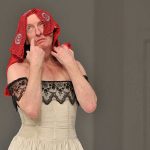
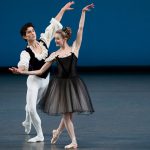
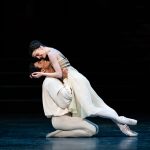
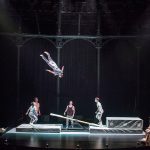

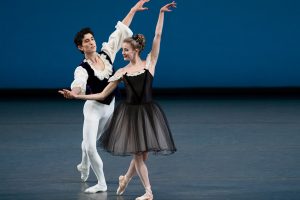
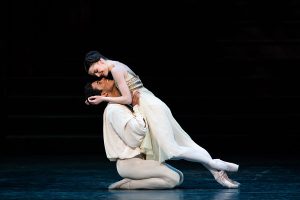
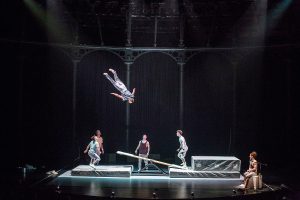
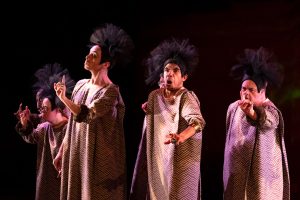
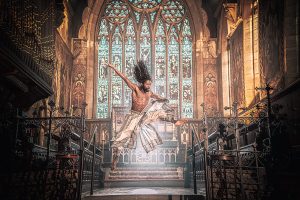
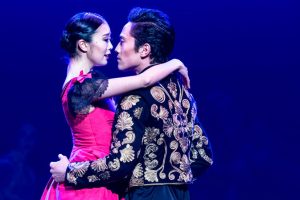
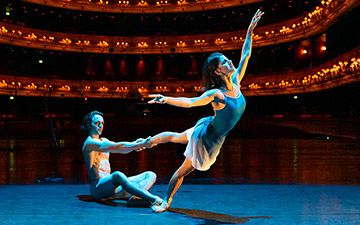

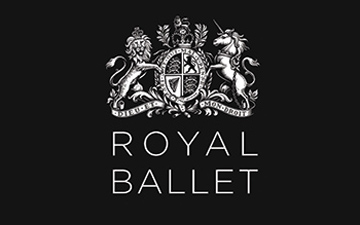

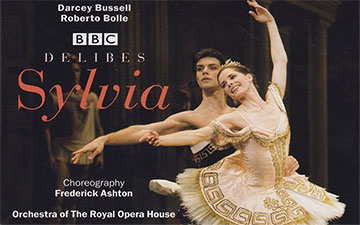
You must be logged in to post a comment.